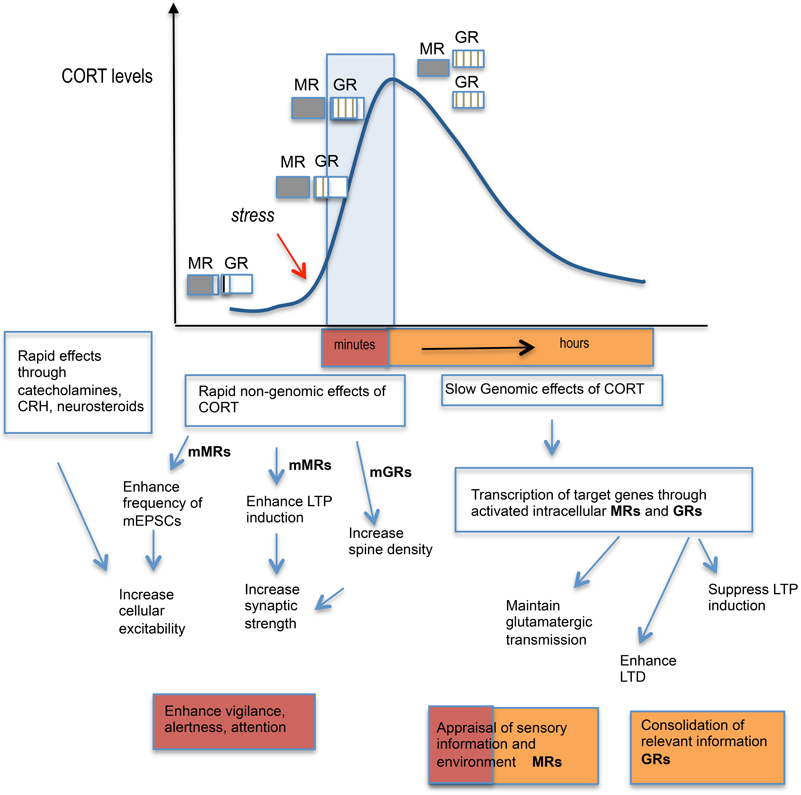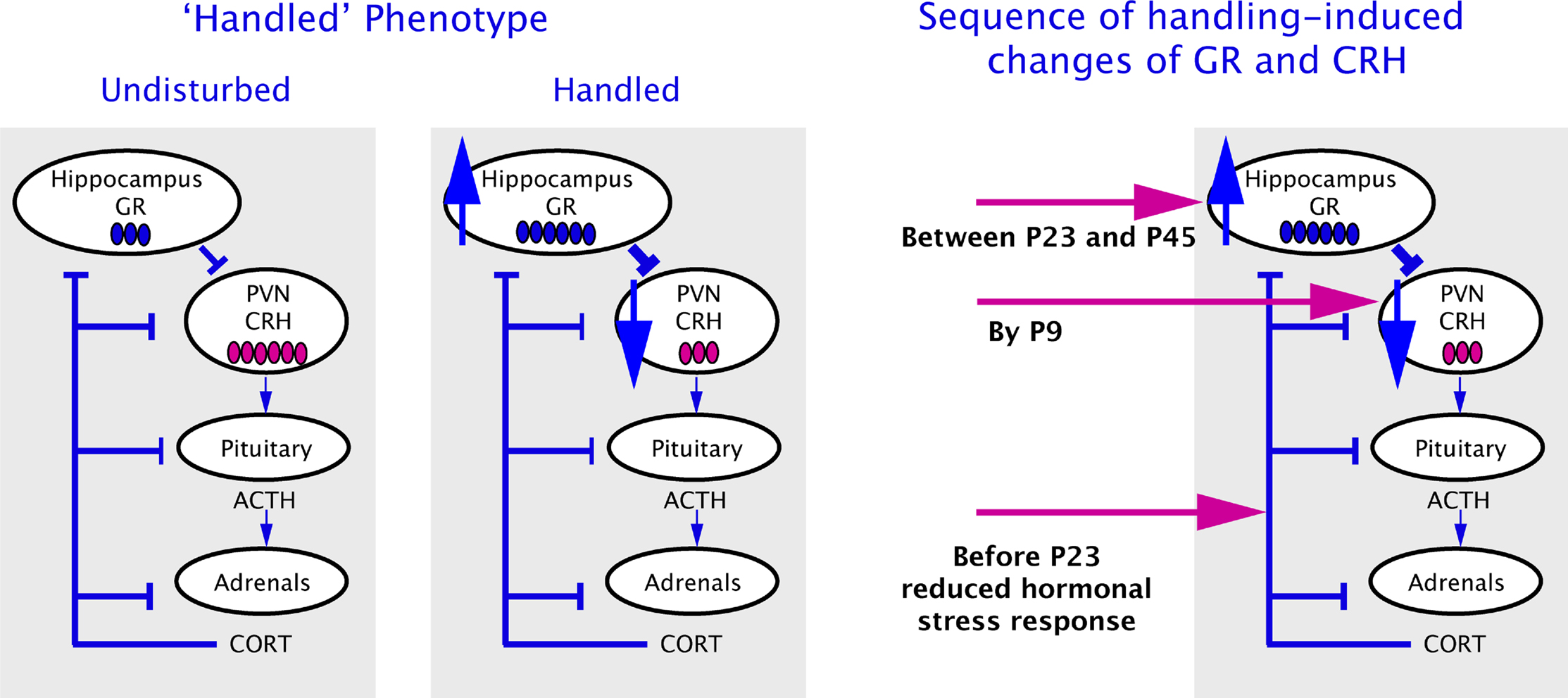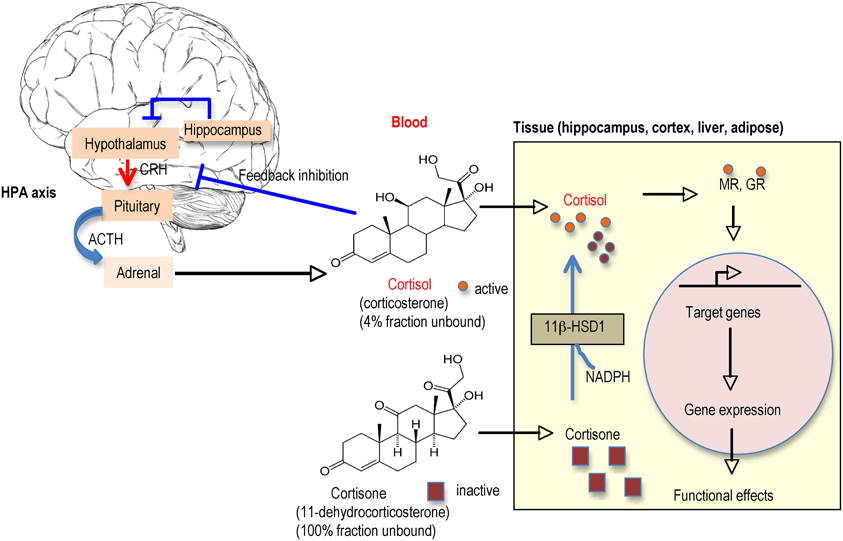Stress(biology) is a term that is commonly used today but has become increasingly difficult to define. It shares, to some extent, common meanings in both the biological and psychological sciences.
A secretagogin locus of the mammalian hypothalamus controls stress hormone release. 2014



 p=. !
p=. !
A hierarchical hormonal cascade along the hypothalamic-pituitary-adrenal axis orchestrates bodily responses to stress. Although corticotropin-releasing hormone (CRH), produced by parvocellular neurons of the hypothalamic paraventricular nucleus (PVN) and released into the portal circulation at the median eminence, is known to prime downstream hormone release, the molecular mechanism regulating phasic CRH release remains poorly understood. Here, we find a cohort of parvocellular cells interspersed with magnocellular PVN neurons expressing secretagogin. Single-cell transcriptome analysis combined with protein interactome profiling identifies secretagogin neurons as a distinct CRH-releasing neuron population reliant on secretagogin's Ca2+ sensor properties and protein interactions with the vesicular traffic and exocytosis release machineries to liberate this key hypothalamic releasing hormone. Pharmacological tools combined with RNA interference demonstrate that secretagogin's loss of function occludes adrenocorticotropic hormone release from the pituitary and lowers peripheral corticosterone levels in response to acute stress. Cumulatively, these data define a novel secretagogin neuronal locus and molecular axis underpinning stress responsiveness.


PNEI COLELITIASI PSICOGENA 2014
Immune System and Stress

T cells take up amino acids from the blood with the amino-acid-transporter complex Slc7a5–Slc3a2
In Pdcd1−/− mice, the lymph nodes have expanded populations of activated T lymphocytes, which have higher expression of Slc7a5–Slc3a2 and larger intracellular amounts of tryptophan and tyrosine leading to decreased levels in the bloodstream.
As tyrosine and tryptophan are essential for synthesis of the neurotransmitters DA and 5-HT in the brain increased uptake from T-cells leads to decreased availability for the brain with diminished synthesis of DA and 5-HT.
Feeling stressed? It might be your T cells 2017 ("more details": Feeling_stressed_2017.pdf)
Activated liver fibrinogen
synthesis induced by IL-6 or TNF alpha also reduces tryptophan availability for the brain
Feeling stressed? It might be your T cells 2017
The effects of a workplace intervention on employees' cortisol awakening response. 2018